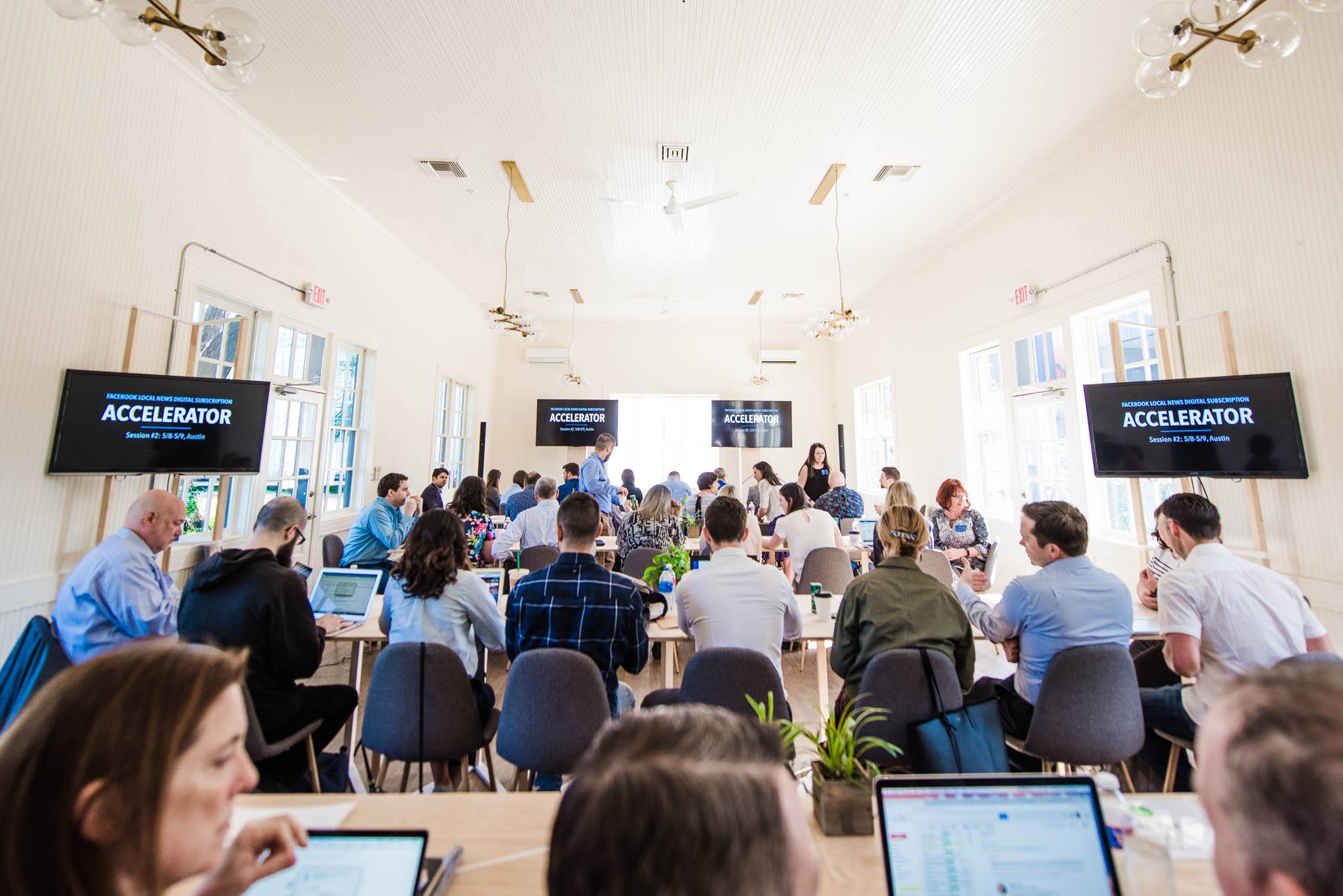
(Um, also. Facebook acknowledged to Congress this week that it had discovered a political influence campaign with techniques similar to those used by Russia in the 2016 presidential race. And the company recently lost $120 billion in market value in what MarketWatch called “the ugliest single-session decline since the company went public in 2012.” Not everything is pretty here!)
The 15 to 20 participants of the membership accelerator will be selected by Facebook, with input from the Institute for Nonprofit News, Local Independent Online News (LION) Publishers, and the News Revenue Hub “to identify a representative group of nonprofit news organizations and local publishers that will best represent the needs of this cohort.” Though local news will be a focus, this program won’t be exclusively for local news publishers. Like the subscription accelerator, the membership cohort will participate in a boot camp led by Tim Griggs, focused on developing marketing to build a team of paying supporters. The accelerator involves monthly in-person programming, weekly training, one-on-one coaching, and grant funding. The Lenfest Institute will help share best practices from the accelerator with the industry at large, as it did with the subscriptions one.
That subscriptions accelerator — with 14 metro newspapers, including The Denver Post, Seattle Times, Omaha World Herald, and Newsday — originally ran for 12 “intensive” weeks. “The idea here was that Facebook had been hearing from local publishers that this is an area where they could use some outside perspective and collaboration and so on,” Griggs told my colleague Laura Hazard Owen in March as the accelerator began. “Being a really good digital subscription company is complicated and involves so many factors — Facebook is one part of that, but it goes beyond Facebook.”Subscription Accelerator 2.0 will continue engaging those same publishers (full list here) through the rest of 2018 and check in with them beginning early next year to double down on subscriber retention, not just acquisition. Facebook says it’s expanding the local news accelerator initiative, originally introduced as just a pilot, thanks to “overwhelming support and feedback from the industry.” Facebook is spending $500,000 on the subscription extension.
The third tent pole in Facebook’s yay-local-news announcement today is the $1 million going into News Match‘s coffers. (Disclosure: Nieman Foundation, home of Nieman Lab, has participated in News Match.) Billed as the “largest grassroots campaign for nonprofit news” and led by the Knight Foundation, Democracy Fund, the Miami Foundation, and others, News Match invites nonprofit news organizations to receive matching gifts from foundations when they fundraise in November and December. Over the past two years, News Match has helped kick in millions of dollars for participating member organizations of the Institute for Nonprofit News. (The deadline to apply for this year was yesterday, sorry.) In the 2017 cycle, more than 100 outlets raised $4.8 million through News Match.
Facebook has been trying to play nice with news publishers since launching the Facebook Journalism Project in January 2017. But the question of news organizations taking money from the platforms that contributed to their near-demise still remains. Emily Bell, who led a study from the Tow Center for Digital Journalism at Columbia University on the relationship between publishers and platforms has pointed out that “Google’s cultivation of the journalism community seems to be paying off” (disclosure: as part of that Google provides money for a summer fellow at industry outlets including Nieman Lab, a role I previously held). But the vast majority of newsrooms see Facebook as the “key villain” in the misinformation/fake news battle.